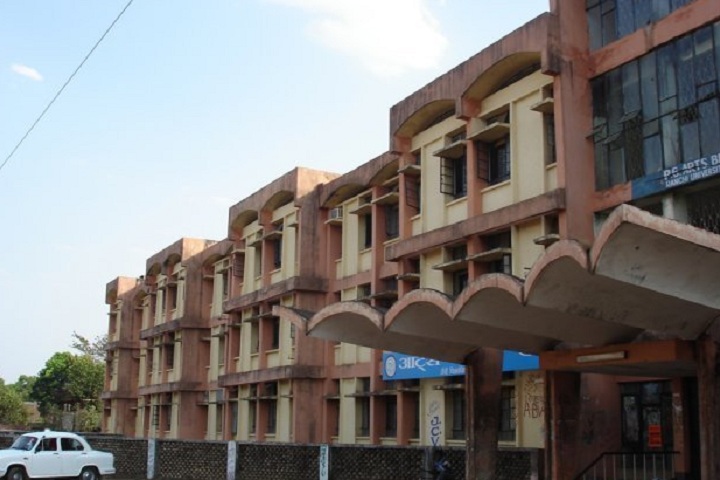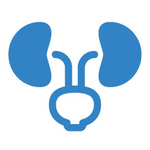What is Tropical Medicine
Tropical Medicine is a branch of Medical Sciences that involves studying diseases persistent in a particular region. This area of Medical Science is yet to undergo development which is why it remains a viable area of study for potential candidates. The word means medicine of the tropics. There are a certain set of diseases involving both communicable and non-communicable diseases which remains a major study portion in the subjects. This course, hence, deals with the process of finding out new developments in tropical medicine.
Like all other branches of Medical Science, this one deals with studying, diagnosing, curing, and preventing the effect of diseases that come that are prevalent in that tropic. These diseases are often restricted to specific regions. This course is primarily suitable for candidates who are interested in researching and fairly in practice. The scope of studying tropical medicine in India accounts for immense growth as it remains a lesser-known field.
Eligibility Criteria (UG & PG) of Tropical Medicine
Eligibility Criteria for Undergraduate Tropical Medicine Course
For the Tropical Medicine course, the basic prerequisite for admission into any medical college is virtually the same throughout all institutions. There are compulsory words that must be practised.
Criteria for qualifying for Undergraduate Tropical Medicine courses
Effective completion of class 12th as part of the medical stream from a recognised board with subjects such as physics, chemistry , and biology.
40-50 percent is the minimum aggregate marks needed to appear for the entrance examinations.
Undergraduate degree courses in tropical medicine are usually MBBS.
Eligibility Criteria for Postgraduate Tropical Medicine Course
In subjects such as biomedical science, and genetics. Candidates should have scored at least 50 per cent in the bachelor's degree aggregate.
For prospective candidates, state-level, university level, and national level entrance exams are held annually. Any of these admissions are common requirements for eligibility across all universities.
The course for Tropical Medicine Undergraduate Degrees is MBBS. The applicant must have earned these degrees from accredited universities to undertake postgraduate studies.
Tropical Medicine Course Entrance Exam
1. NEET
MBBS or any related bachelor's degree is the prerequisite for pursuing a career in tropical medicine. For candidates to take admission to MBBS, BDS, and any medical/ paramedical course in India, the National Testing Agency conducts the National Eligibility Cum Entrance Exam. Registrations start in December of the previous year.
2. PGIMER
The Postgraduate Institute of Medical Education and Research Exam provides admission to different courses for a master's degree for interested candidates. This test takes place twice a year, and in March, the applications are generally published.
College Predictors VIEW ALL
Scope of Tropical Medicine in India and Abroad
Obtaining a career in Tropical Medicine provides innumerable opportunities. The suitability of studying tropical medicine is that the students get to acquire knowledge about more unique diseases and infections and understand the dynamics of those from scratch.
They gain expertise in this field as this is a highly specialised course and requires more candidates who are keen on solving these unusual diseases. Along with that, this course focuses less on Global Health and more on specific regional places which are native to the diseases. To stop an increase in these, the exposure of the candidates across various health facilities in different regions is available. This medical science division caters to all those who enjoy health care and want to lead long and stable life.
Course Fees Tropical Medicine
| Minimum Fees | Maximum Fees | |||
|---|---|---|---|---|
| Private | Government | Private | Government | |
| DOCTORAL | ||||
Course Subjects
- Internal medicine
- Paper 2 - Home Science- Section B( Human Development, Mother & Child Health And Early Childhood Education)
The subjects taught in tropical medicine include all branches of Medical Science with special emphasis on some. They cover paediatric, psychiatry, Dermatology, coronary care, haematology, cosmetology, microbiology, cardiology, as well as community health management. The range of study is unlimited and students can exploit their learning potential in many ways the subject covers both theoretical and practical domains spread across four semesters.
The subjects also differ from University to University as various integrated add-ons are commonly Incorporated. A list of the subjects studied by students pursuing Tropical Medicine is given below:
| Environmental disorders | Poisoning |
| Nutritional disorders | Internal medicine |
| Tropic specific organ Limited diseases | Medicine Medical emergencies |
| Rickettsia and Bacterial infections | Child health |
| Fungal and Protozoan infections | Maternal health |
| Helminthic and viral infections | Public health |
Careers in Tropical Medicine
Tropical medicine involves technical and scientific work ranging from research conduction to practising medicine in clinics and hospitals. Tropical diseases are often widespread and unique, which is to say their cause is sometimes unknown.
These diseases include communicable and non-communicable problems like cardiovascular issues, Leukaemia, HIV AIDS, malaria, dengue, and many more. In such cases, the medicines are sometimes underdeveloped, and postgraduates in tropical medicine contribute to the pharmaceutical industries a great deal by devising the compositions of medicines required to prevent and cure these diseases. There are different profiles of workers, and each requires effective skills, theoretical knowledge and practice.
In addition to these small laboratories, occupations in tropical medicine often include academic innovation, educational blueprint formulation, nursing, medical practise in top healthcare institutions, staff organisation and leadership of medical activities. Therefore, a career in tropical medicine requires numerous lines of work and is not limited, which allows the aspiring candidate a wide range of growth and enrichment of personal skills.
Upcoming trends
In a developing country like India, there is a huge potential for development in the field of Medical Science and Medical Research sector. This is because the majority of areas are inhabited in rural settings where people are majorly engaged in extensive labour and unhealthy lifestyle practices.
On top of which their living conditions are more often than not unhygienic and in certain cases even deadly. In these settings, tropical diseases like malaria and tuberculosis are very common. These deviations call for the emergence of new technologies and methods that can help in reducing the overall statistics of tropical diseases in India.
Following is the list of certain trends that can be beneficial in helping this branch of Medical Science flourish:
| Microarray technology | Recombinant Biotechnology |
| Culturing and hybridisation | Recombinant Nanotechnology |
Job Profiles and Top Recruiters
 All India Institute of Medical Sciences
All India Institute of Medical Sciences Sir Ganga Ram Hospital
Sir Ganga Ram HospitalBeing highly qualified specialists in tropical medicine, a candidate would also possess background knowledge of other medical specialisations taken up by studying MBBS. The area of work is huge because there are other fields of study that encompass tropical medicine, including Pharmacology, functional genomics, and biotechnology. The following are the kinds of employment that a few well-known brands and medical institutions offer. It should be noted that vacancies, time sizes, and benefits can vary greatly from one organisation to another and from one role to another.
Some Job Profiles Under Tropical Medicine Career Include-
Job profile | Job description |
Researcher | A researcher performs experiments and finds out inferences to create qualitative data, analyse, and use it to enhance the quality of life and prevent infectious diseases. |
Tropical Disease Specialist | The job profile of a Tropical Disease Specialist includes studying various infectious diseases, their diagnosis, and treatment. Tropical Disease specialists also assess health risks and use their expertise to eliminate them. |
Medical Content Writer | Scientific articles, research-related documents, disease and drug-related documents, reports , journals, manuscripts, and narratives for healthcare organisations are produced by medical content authors. |
Physicians/ Clinicians and Doctor | Physicians, clinicians and doctors have licensed health professionals who work towards restoring human health by actively practicing medicine. The main focus is Diagnostics as well as timely treatment. |
Academic/ Professor/ Teacher | Physicians, nurses, and physicians are qualified health practitioners who are actively practicing medicine to work towards restoring public health. As well as prompt treatment, the primary emphasis is diagnostics. |
Medical Coordinator | Medical coordinator administers staff activities in Healthcare institutions. |
Top Recruiters
The top recruiters of tropical medicine include various International organisations like WHO which are engaged in consistent research practices and in-depth analysis to come up with.
Various technologies are being developed for which the companies require candidates with a strong scientific base. The major recruiters of scholars in Tropical Medicine careers are medical organisations and institutions. Some of the following are:
| World Health Organisation | Medanta The Medicity |
| Epidemiology intelligence service | Sir Ganga Ram Hospital |
| Carepro Global | Postgraduate Institute of Medical Education and Research |
| India bioscience | Christian Medical College |
| All India Institute of Medical Sciences | Calcutta School of Tropical Medicine |
Average Salary
Depending on the job role and the technicality involved, different organisations provide attractive packages. The complexity of the following course is calculated by these packages by listing a few career profiles with average annual revenue:
Job profiles. | Average Annual salary. INR. |
Tropical Disease Specialist | Rs. 6-7 Lakhs per annum (Approx.) |
Medical content writer | Rs. 4-5 Lakhs per annum (Approx.) |
Physician/ Clinician/ doctor | Rs. 10-15 Lakhs per annum (Approx.) |
Academic/professor/teacher | Rs. 8-9 Lakhs per annum (Approx.) |
Medical coordinator | Rs. 3-4 Lakhs per annum (Approx.) |
Researchers | Rs. 7-8 Lakhs per annum (Approx.) |
Required Skillset for Tropical Medicine
Tropical medicine continues to be an evolving stream, so the doctor should always remember to apply every aspect of theoretical knowledge to the research. As a field of study, tropical medicine not only treats the patients but also proposes the reasons and causes of the occurrence of these unique diseases in regions, as well as their correlation to factors like health, development, and lifestyle. Following are the few mandatory skills required to study and practice Tropical medicine:
1. Research Conduction:
Scholars studying Tropical medicine should process eminent research skills and look out for new findings by dwelling deeper into the life science project at hand.
2. Clinical skills:
Clinic skills in tropical medicine include keeping tabs on relevant clinical history in a systematic order, solving clinical problems, after factual diagnosis, and treating tropical diseases. This constitutes a major profile of candidates pursuing tropical medicine. Hence, these skills cannot be substituted and are a must to possess.
3. Practical skills:
To cure any disease, it is significant for Physicians, specialised in tropical medicine, to understand the fundamentals of the disease. These include the application of various practical skills like performing a Biopsy, Dialysis, Funduscopy, and Life support. Hence, understanding the practical application of knowledge is essential.
Course Curriculum for Tropical Medicine
The curriculum for Tropical Medicine involves an extensive study of subjects wherein all kinds of diseases are taught. Candidates are made to gain expertise through different sets of methodologies. Usually, the degree courses are expanded up to two years and 4 semesters.
The subject is divided evenly, and domain-specific competencies are imparted to the candidates. These competencies include the cognitive domain, affective domain, as well as psychomotor domains. These domains act as a blueprint for the candidates because they entail properly laid down as well as highly specific skills ranging between 3 to 5 and are mandatory to be acquired. These skills are then tested for practical application by means of various laboratory tests and theoretical examinations. Hence, the curriculum for tropical medicine is appropriately enriching, practical, as well as informative.
Popular Tropical Medicine Entrance Exams in India
Popular Tropical Medicine Colleges in India VIEW ALL
Frequently Asked Questions (FAQs)
Question: Is studying Tropical Medicine in India a good choice?
Answer :
Yes, definitely. Studying Tropical Medicine in India provides great job opportunities which are illustrated by the average salaries they receive.
Question: What are the entrance exams you can take to join a course to study Tropical Medicine?
Answer :
NEET
PGIMER
Question: How much does it cost to study tropical medicine in India?
Answer :
Studying medicine in India can be fairly expensive because it involves direct dealing with various high-grade chemicals, laboratory equipment, research space etc. and normally these costs are incurred along with tuition fee. The cost of studying tropical medicine in India ranges somewhere between 6 to 8 lakhs for two years.
Question: How many years will it take to complete the Tropical Medicine course?
Answer :
The number of years it takes for any medical course to be completed depends on the level of experience that a research scholar might like to achieve. This is because, before a plethora of disorders and infections, Tropical Medicine involves a large study and needs consistent studies to develop an existing career around it. The Master's programme typically takes up to 2 years, but it may extend the total years of study up to 7-8.
Question: What should I pursue in my Masters to build a career in Tropical medicine?
Answer :
Candidates looking forward to pursuing a career in tropical medicine should opt for Doctor of Medicine in Tropical Medicine or MD Tropical Medicine. This is a post-graduation program which extends up to two years and provides the postgraduates with adequate medical science knowledge.
Questions related to Tropical Medicine
hi ...is tropical medicine a clinical branch wherein we can practise actively as a consultant physician, or is it kind of non clinical branch ?
Hello Aspirant
Tropical medicine is is a branch that deals with interdisciplinary branches of medicine that deals with health issues that occur uniquely aur mor white speed are more white state or are more difficult to control in tropical and sub-tropical regions . Patience in this field properly diagnosis and
My neet pg 2020 rank 72641 and score 391 can I get chance for admission in MD general medica,tropical medicine,or community medicine in Gov college or private college
Going by previous All India cut offs and your rank, there are little chances for any seat under any branch. Having said that, this is 2019 data and cut offs change every year depending on various factors such as no.of Candidates appearing for the exam, no.of Candidates qualified, difficulty of







.jpg)


 Answer later
Answer later

















